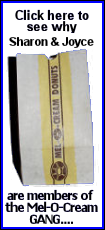|

Among other holdings, News Corp. owns the Fox broadcast network, Fox News Channel, the Twentieth Century Fox movie and TV studio and has a one-third stake in satellite provider DirecTV. The company also owns the New York Post and the online social hangout site MySpace.
The sprawling nature of Murdoch's holdings works to his advantage, several experts said, because it avoids the concentration in a particular industry that could trigger antitrust scrutiny.
Murdoch's company has extensive overseas holdings, including satellite broadcasters in Europe and Asia, newspapers in the United Kingdom and Australia, and book publishing and magazine properties.
The deal would probably not face significant challenges from the Federal Communications Commission either, according to several lawyers who spoke about the transaction on the condition of anonymity because News Corp. is a client of their firms.
[to top of second column]
 |

Federal cross-ownership rules prohibit the same entity from owning both a television station and a newspaper in the same local market. While News Corp. owns two local stations in New York, the Journal isn't considered a local New York City paper under a previous FCC ruling, two lawyers said.After News Corp. and Dow Jones come to a formal agreement, they must file a notification with the Department of Justice and the Federal Trade Commission. Transactions valued at more than $60 million have to notify those agencies and automatically undergo a 30-day review.
The agencies usually divide antitrust reviews on a case-by-case basis. Justice would likely review a News Corp.-Dow Jones deal, as it generally oversees media transactions, several lawyers said.
[Associated Press;
by Christopher S. Rugaber]
Copyright 2007 The Associated Press. All rights reserved. This
material may not be published, broadcast, rewritten or
redistributed.
 |